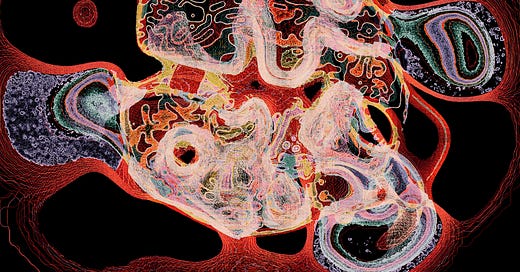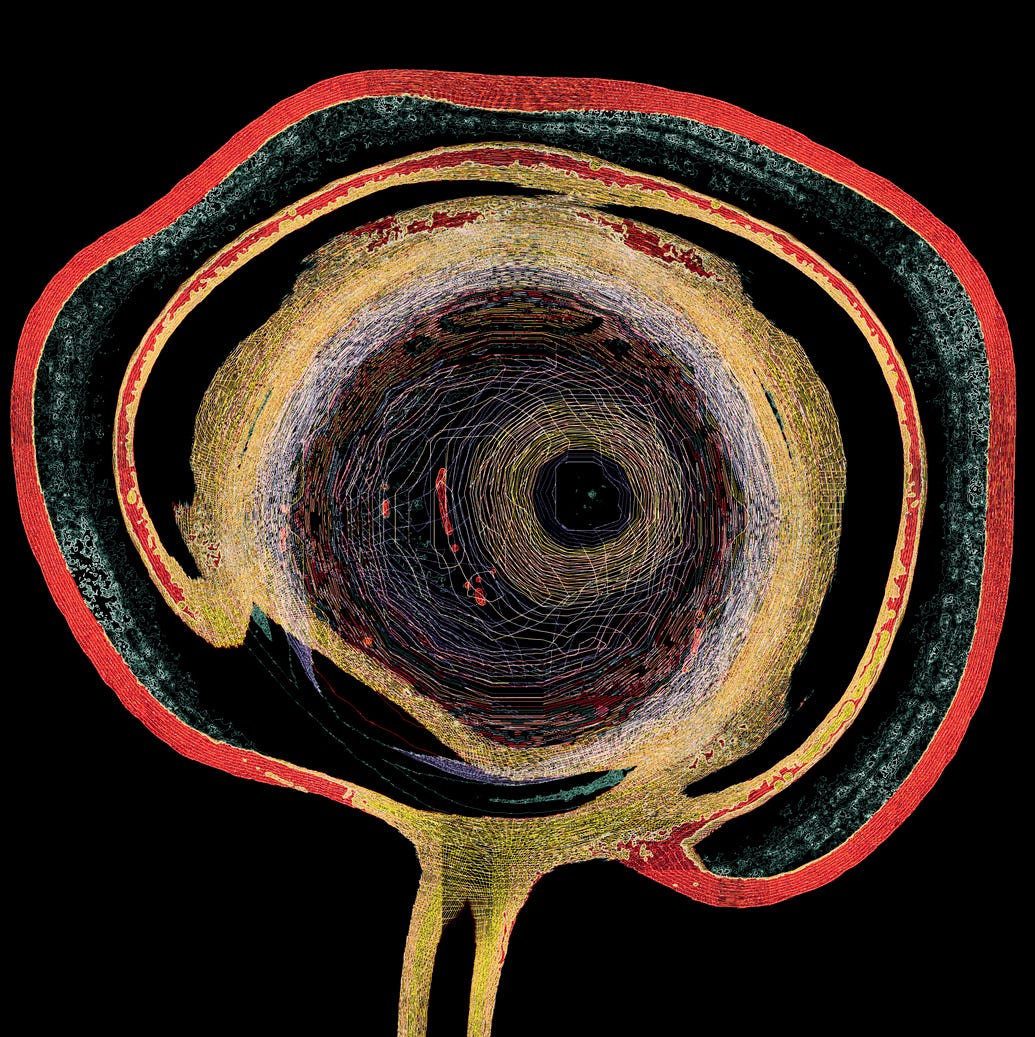The Fascinating Story Behind Qubibi – Personal Interview [2022]
Read my personal interview with Qubibi, also known as Kazumasa Teshigawara, an artist and designer, born in Tokyo.
If you have been around the NFT art space (especially the Tezos art scene), you probably have heard about Kazumasa Teshigawara, aka qubibi. His abstract patterns have been topping the sales charts and inspiring plenty of conversations among my readers, and with good reason.
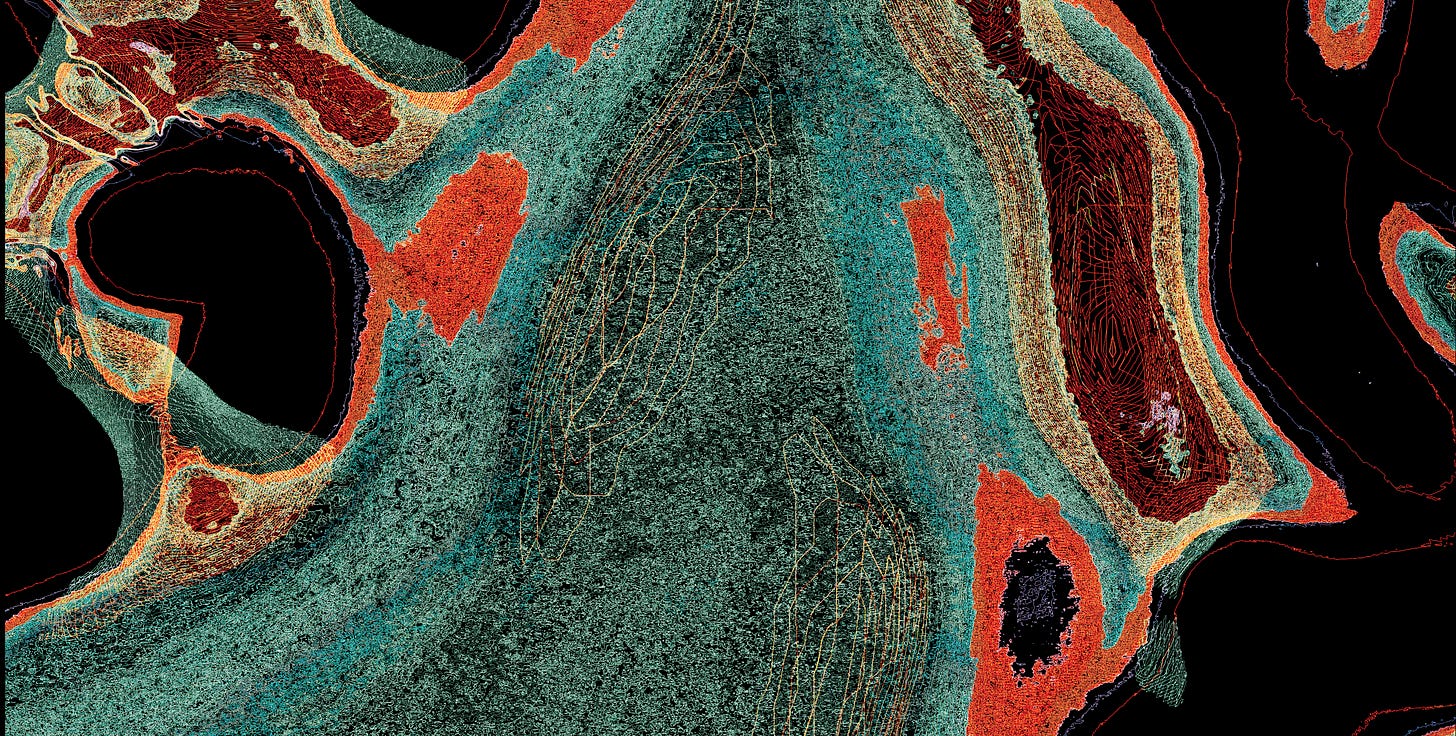
His artwork style reflects a long career that combines painting, digital and audio compositions, and, sometimes, a subtle Japanese influence. This interview started from my curiosity to learn more about qubibi, and he was kind enough to answer my - numerous - questions to share with all of you.
Note: Keep in mind that qubibi's native language is Japanese. We have edited parts of the interview together but left some parts untouched to keep his essence.
Let’s get into it…
Can you tell me a bit about your background (studies, work, where are you from, where are you based)?
I was born in Ikebukuro, Tokyo, Japan.
My "school" would be Nihonbashi Textile Processing Factory where I started working at the age of 15. I learned a lot from the adults who were there. Music, movies, culture, etc., we talked endlessly while working. It was a place where people kept talking about wide range of topics.
1990s. The end of Nostradamus' great prophecies was approaching. I think it was an era that was heading into destructive ways, compared to the the clean present. There were stimulating things all around. When I went to a bookstore, there were many “Avant-garde” books lined up. At that time, at that place, I was in a very sensitive age. I earned money at work, so even though I was a kid, I could use it to purchase different kinds of art magazines, books, and tools. I have good memories of buying a used Mac and then breaking it the next day. It was around this time that I spent hundreds of thousands of yen on Virtua Fighter at the game center.
I was also managing photographs of plants and microscopic at the photo library. You probably see that influence in my art. I became a designer, won multiple awards in Japan and overseas, then lost my way for a while, which led me to where I am today.
When did you start creating art, and where did you start creating digital art?
I've been drawing since I was little. I was fascinated by the black and white world of Aubrey Beardsley and Shigeru Mizuki. I guess I haven't drawn much since I encountered Mac when I was 17. HyperCard was popular on Mac. I was forced to make something like an adventure game with that mechanism and play around with it.
But I was into making music more than Mac during that time. “Lo-Fi" and "Bedroom Techno” were all the rage, so if you went to a music store, you could easily get an environment where you could easily record at home. I was making musics by myself using a cassette MTR.
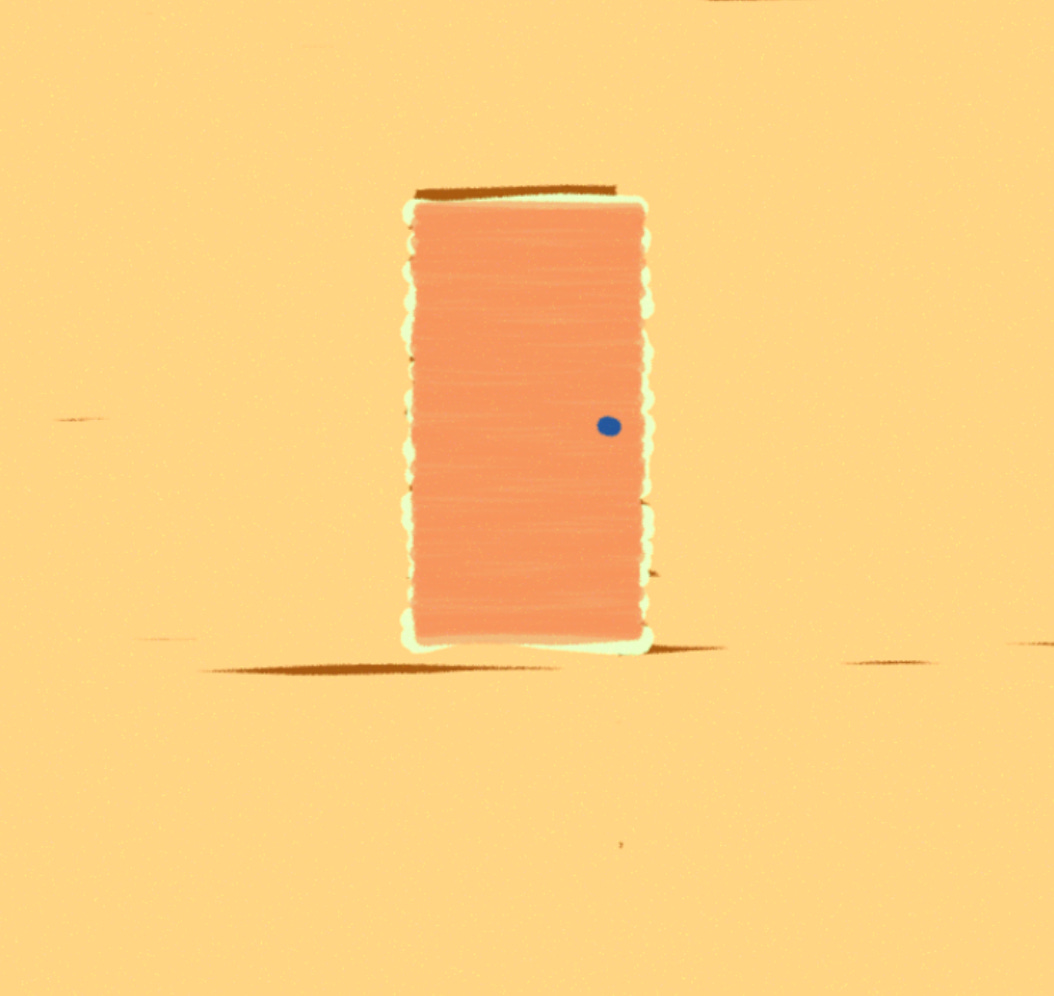
How do you find inspiration to create your artwork?
I guess I find it from everything I see in my daily life. However, I think my beginning was probably an encounter with the movie "Sweet Movie" by Dusan Makavejev. It's a stimulating movie, so I wouldn't recommend it for everyone. But when I first saw it, I was surprised. Too intense. I had watched it many times without knowing what it means. After watching it over and over again, I was starting to think it's super beautiful, vulgar, stupid, sad… A cool movie.
In other words, I’m inspired by things that happen "by chance". I think that it is only through such encounters that I can connect with my life and with my art. When I'm not connected, even if I force myself to make it based on my own wishes, I can only make “wrong” things.
What are your favorite tools and techniques, and how would you describe your process?
I used to love Photoshop. I love playing with colors. But it's become a terrible tool as the version goes up. I still to use it, but... I mean, it's not my favorite!
If I had to pick up a few favorites, one would be vscode. I can't code without it. Also ColorMatrix class.
It was made by Mario Klingemann for the as3 about 15 years ago and I still use it.
Because color is everything. Color creates shape.
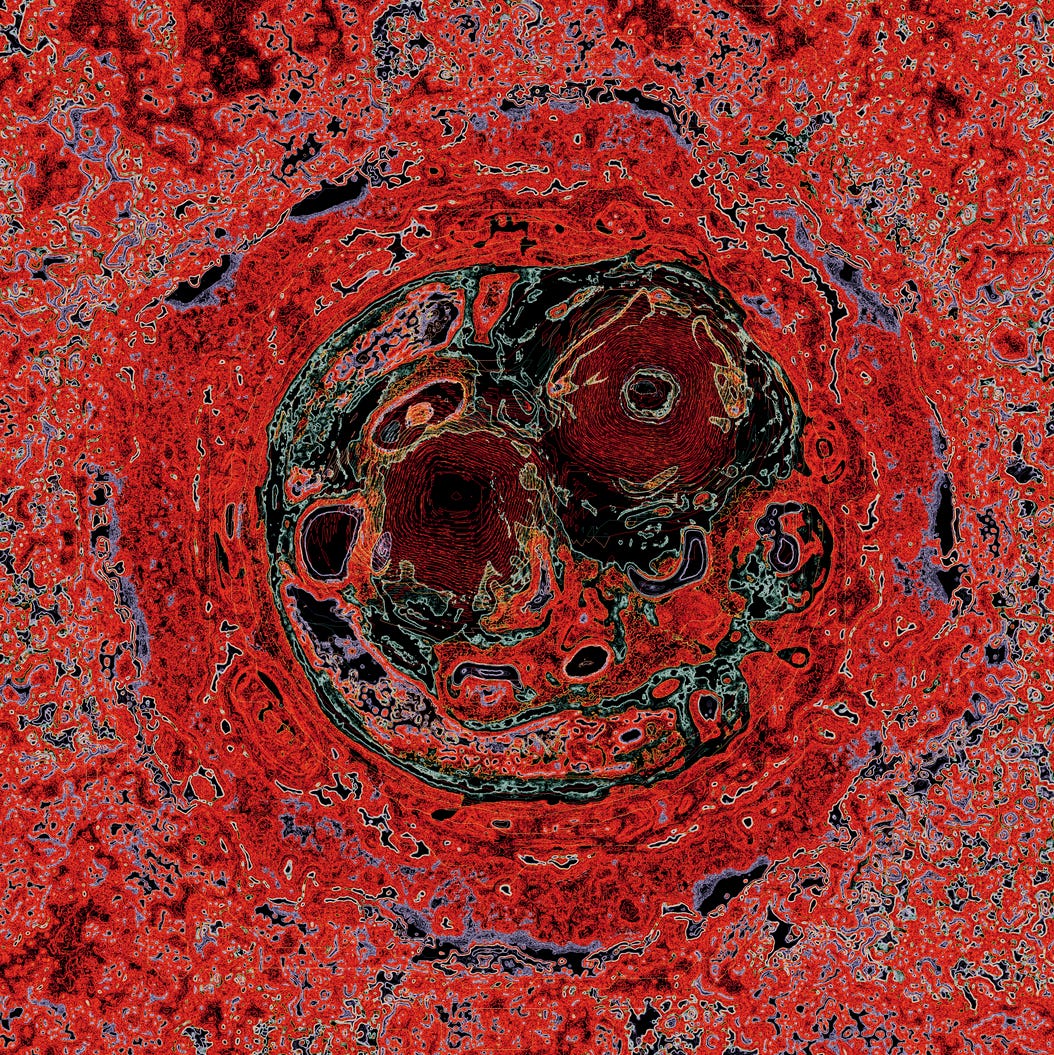
How does it feel to have collectors and fans from all around the world?
It's surprising. They often know more about me than I do. The other day, suddenly someone make several fake accounts and copyminted my pieces. Collectors protected me.
I can't speak English, since I didn't go to school, I can't understand English even less than the average Japanese. I use some translation tools for tweets and everything. It's actually super hard. Even in this age of AI, translation between Japanese and English is still immature and misunderstandings are likely to occur. That's partly why I don't write much, and I reply slow.
The point is, even though there are many things I can't communicate well, so many people get my ideas and love my art. That's amazing. Internet is amazing. NFTs are amazing.
By the way, I'm not popular at all in Japan. That's fine :)
What’s next for qubibi?
Preparing for the 2nd of wiwizn on verse. Studying FxHash. Being storeroom janitor and doorkeeper, also leftover's cleaner. Looking for an atelier. Health care. Supporting for my son's university entrance exam. I'm not saying that everything is going smoothly though.
2022 is almost over, but next year I would like to resume making non-generative art.
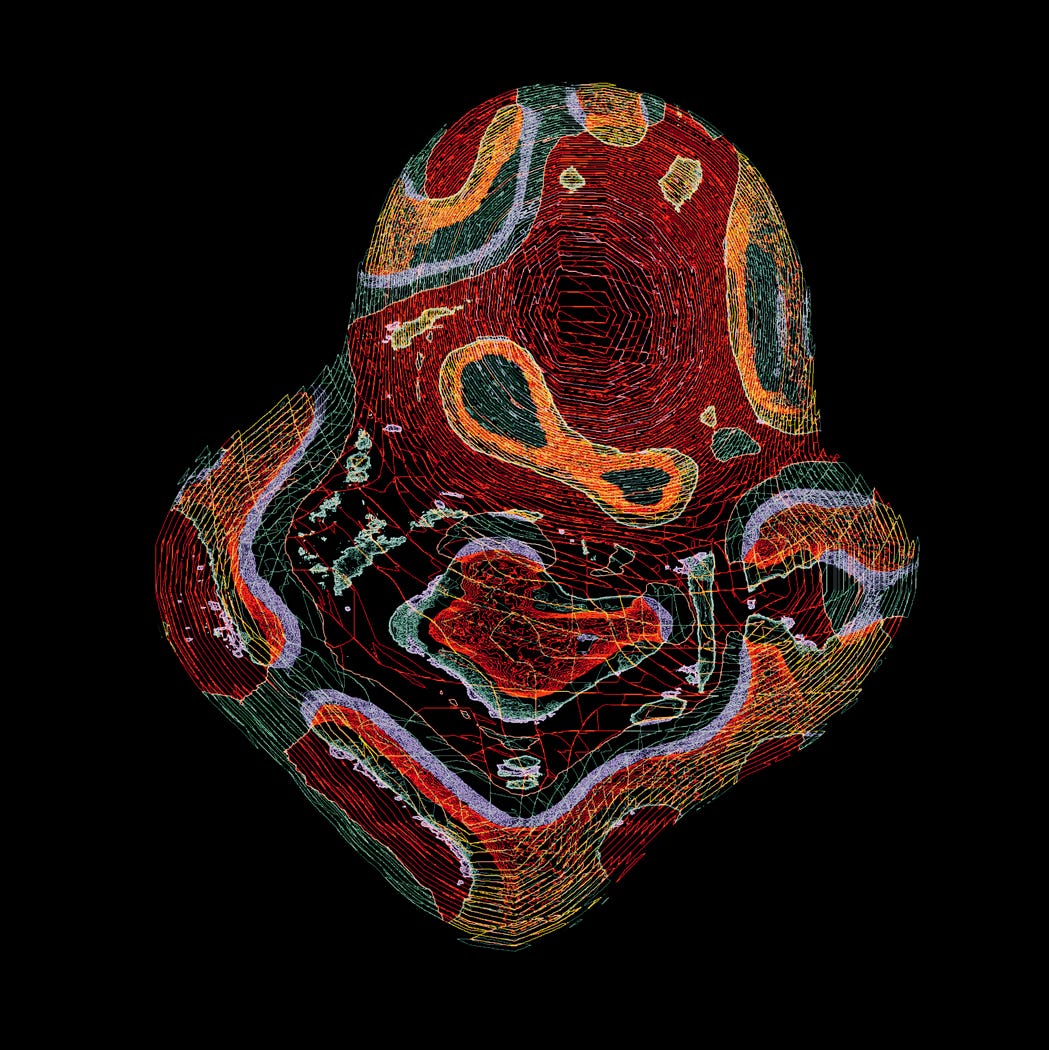
Who are your favorite artists (in general and/or NFT creators)?
Since there is no end, let's limit it to artists who have released NFT art. I'll let the dice roll and pick 5 random names. die with the most likes, davidhenrynobodyjr, Julien Espagnon, 1,989 Sisters, Jake Fried.
Any advice for emerging artists or those trying to become full-time artists?
We have no choice but to follow our aesthetic awareness without worrying about surroundings. We have to create subjectively.
We don't need to be objective except only sometimes.
By the way, you can assume that all the advice from fickle people like me is wrong. Hahaha.
After understanding his rich history, filled with unique experiences and influences, it isn’t surprising to see his prolific resume of awards (15) and exhibitions (25). You can find his whole trajectory here.
Finally, here is a self-created summary of his life (from his website).
Kazumasa Teshigawara: Artist, Interaction Designer, Web Designer, Lecturer (Tama Art University Faculty of Art and Design Department of Integrated Design) / Born in Ikebukuro, Tokyo.
Used to live with mother in the beginning. Later moved in with a new family. Was taken around bars while still young. Hostesses used to like me a lot. I stopped going to school. Played game at home. Cried out of fear when collectors banged at the door for money. Father ran away, got caught. Graduated elementary school. Got into an accident💥 and hurt my neck. Father came back. Father died💀.
Graduated secondary high. Worked at Nihonbashi Textile Processing Factory. Got into an accident💥, almost died, and hurt my neck. Got into music. Quit point drawing. Bought a Mac. Met some weird people. Said goodbye. Unknowingly entered a bad content design firm and quit immediately. Was scared for days after I quit because the company got hold of me. Worked and quit a number of jobs.
At age 21, discovered the fun of design. Eventually got married. Had a kid. Got separated. Got the kid. Taking care of the kid. Working quietly under the label 'qubibi'. Would like to make a lot of things.
Find more about qubibi in his social networks:
Until next time,
- Kaloh
If you enjoyed this issue, consider subscribing to Kaloh’s Newsletter to receive my articles for free in your inbox. For the full experience, become a premium subscriber.
What you’ll get:
Receive premium and public posts.
Access to my private Discord server with over 150 NFT enthusiasts.
Participate in monthly NFT giveaways.


